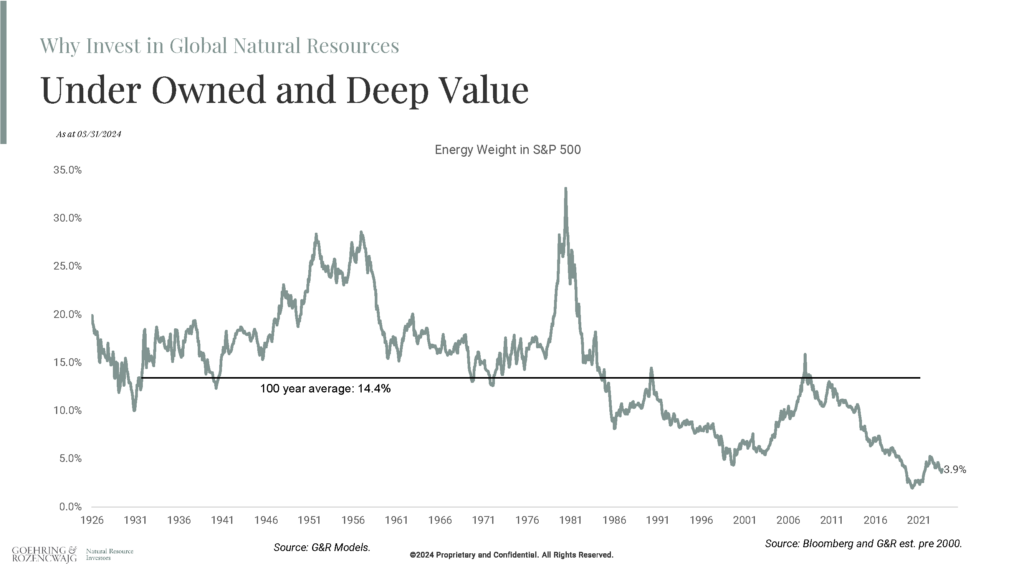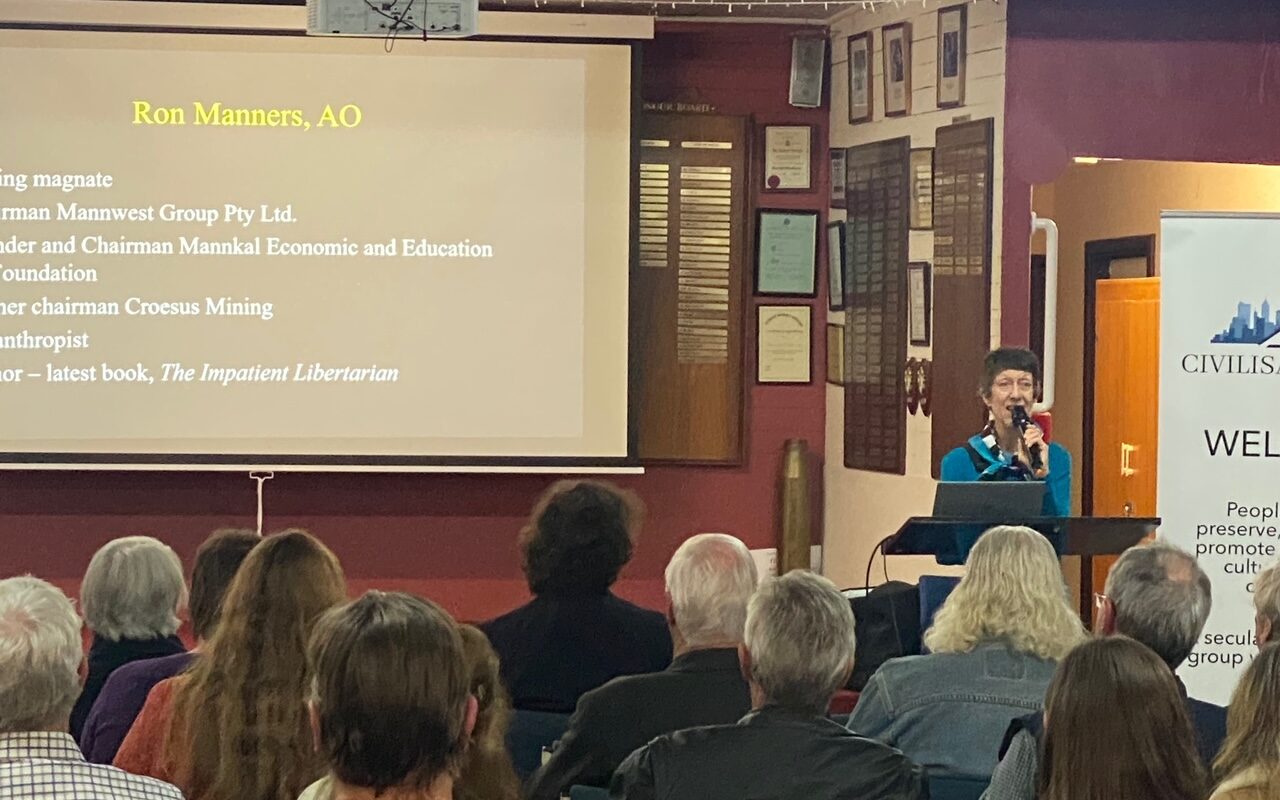Below is a transcript of a speech that I gave to the Civilisationists on Wednesday the 24th of July on the mining industry. Specifically touching on the current state of the industry, and how it can be saved.
“Mining excites me, so that is why I enjoy talking about mining.
Initially it was my family involvement that brought me to mining.
My Great Grandfather, William Manners, was one of the original Ballarat prospectors who had a role to play in the Eureka Stockade Revolt, in 1854.
His son, W.G. Manners, later became one of the first two graduates from the Ballarat School of Mines and went on to form the business that still continues 130 years later, as Mannwest Group.
W.G. Manners died 13 years before I was born, so the only way I got to know him was to assemble a book to incorporate his collected writings. The book “So I Headed West” is available as a free e-book.
This long involvement has given me a great feel for the mining heroes of the early days, their aspirations, achievements and, more importantly, their attitudes to life.
These insights have also shown that there are two distinct streams of Australian history that have emerged.
Firstly, is the stream I will call the Geoffrey Blainey style which simply reports on facts and often answers the question of why.
The second stream is what I call the Manning-Clark method which adopts an ideological fabricated style.
This background has also convinced me that the early mining heroic leaders would be rolling over in their graves to see so many of today’s corporate leaders, lining up with their begging bowls, seeking taxpayer subsidies, taxpayer funded bailouts and other political favours.
There is a very high price to be paid for living off government welfare.
It would be far more noble if the mining companies were to stand up and fight union thuggery and all the other bureaucratic on-costs imposed on them and to regain their competitive position.
Fortunately, the influence of those early miners managed to live on, even if, only through a few of the subsequent leaders – people like Charles Copeman and Lang Hancock, people with enough courage to confront the rot and stand up straight.
Over the 130 years that captured my attention I have seen the mining industry go from an era where miners were heroes, through to the present day, where many miners have just become apologists, going along with the ‘fad of the day’, whether it be ESG, DEI, Welcome to Country or appeasing Green extremists and climate catastrophists.
They are unable to defend their industry in the face of criticism from their children over the morning Weet-Bix when they are often asked, “Mum or Dad how could you possibly work for a mining company in view of all the damage they do?”
What is so hard about explaining to these ideologically primed critics of our industry, that mining is one of the most creative careers available to them?
Just as creative as writing or music.
Think of this.
Mineral and petroleum explorers go somewhere in the outback where there is nothing. Then, by combining science (geology and geophysics), with capital investment and human ingenuity we discover targets which with further research may lead to drilling and discovery which leads to development, followed by schools, hospitals, and cities.
The cities are created to serve the productive engines of Australia, such as mining and agriculture.
That is the sequence. Do not let people tell you that the cities come first.
The role of our capital cities is to serve mining and agriculture. Do not ask me the purpose of Canberra which I once described as, “200 square kilometres, surrounded by reality!”
So, what is so hard about standing up for mining? Why is that not taught in schools?
Are each of you prepared, with sufficient information, to stand up and defend mining, agriculture, live sheep export, or other productive pursuits, the next time you hear that Australia would be better without them? So, what went wrong over the 130 years, between miners being heroes and miners being apologists? Unfortunately, there is no simple, single answer. But there are three simple answers, and I will mention each and then conclude with the good news.
The three main things that went wrong are:
1. The mining industry and all of Australia’s productive industries, even including the education industry, got caught up in the Gramscian / Marxist plot, often called ‘the long march through the institutions’.
That was designed to dismantle our confidence in ourselves, in western civilisation, in our religious beliefs and throw us all into total reliance on government support, government favours and welfare. This is all part of the ongoing ‘crisis industry’ which alternates between ‘climate crisis’, ‘education crisis’, ‘health and depression crisis’ or whatever else is the ‘crisis of the day’.
The only ones making a profit from all this are those who thrive on the attached support groups peddling Corporate Social Responsibility / ESG / DEI / Climate and Intermittent Energy / LGBT / XYZ etc.
2. The second reason is one designed by the large mining companies themselves. It was a plot that went wrong and has backfired on the very same mining companies. About 30 years ago the incorrectly named Native Title Act (I say ‘incorrectly named’ because the Native Title Act did not give our Aborigines any title at all, it gave them only a licence to obstruct). The larger mining companies then, in their rush to internationalize, recognized the attractiveness of the African Countries and in true cartel fashion designed a construct known as the Global Mining Initiative (GMI).
They then peddled the GMI concept amongst the political leaders of the African Countries as a way of explaining that the medium to smaller mining companies lacked the capacity to meet the loftily worded concepts put forward in the GMI.
They promoted the concept that only they had the financial muscle and scale to pull together the giant projects that these African political leaders could then promote as being their own flagship projects.
Hence, the birth of the Social Licence to Operate concept. Again, with delightful vague wording.
The joke has been on the mining companies themselves as those same African countries have repeatedly used these lofty words as a club over the head of those very same mining companies.
Yes, they did it to themselves.
3. The third, (and this goes far beyond mining)? This may best be described as the changing meaning of the word ‘competence’. This was highlighted, this week, by Economic Writer, Jeffrey A. Tucker (the EPOCH Times – July 19, 2024) where he identified the breakdown of security leading to the assassination attempt of former President Trump.
All the security boxes were ticked, all the guards were fully rehearsed and in place. So, who is to blame?
Let me suggest another example. This week’s CloudStrike software outage.
Once again, all the boxes were ticked. Too bad. No-one to take the responsibility. Replaced with the fine-art form of ‘arse covering’.
This farcical pattern is so familiar in government and corporations these days. The word ‘competence’ no longer has any meaning.
We are all suffering from the fatigue of not getting answers to our question, ‘what are you going to do about it?’
Is it time for a peaceful revolt?
Time to start withholding payments? (Perhaps that is one for another night?)
How have we permitted the price of excellence to be driven beyond our reach?
The Good News:
So, is there any good news out of all this?
Yes, there are small signs that the mining industry is becoming aware that they must try harder in this battle.
The below publication Golden – The Rise of Industrial Gold – has just been released by the Minerals Council of Australia and available here.

This great publication adequately captures the excitement of our gold mining industry.
The other good news is shown on this graph:

This graph clearly shows the cumulative outcome of the 30-year period where the mining industry has been incompetent in projecting a favourable image to the investing public, during which the time the enemies of industry have succeeded in demonizing the resource industry.
That explains why investors have fled elsewhere.
Note the continuing trend toward this under investment, which could equally be seen as an investment opportunity.
Study that 100-year chart carefully.
Any year under that straight line – the last 30 years – shows under investment, and under ownership, by investors.
That chart is shown with the permission of Goehring & Rozencwajg, the New York based resource investment fund.
For our industry to stop dead and our lights be turned off will represent the ultimate victory of the econut extremists.
However, it may just be that enough voters, once they clearly see the emerging scenario, will decide to vote in favour of keeping the lights on and bringing an end to all this nonsense.
We would then see an outbreak of ‘project approvals’, a rush of investment, and Australia emerging to fulfil its responsibility of becoming a minerals and energy powerhouse, capable of providing responsible, competitive alternative energy sources. This healthy competition could diminish the influence of the world’s dictators, many whom have manipulated themselves into undeserved positions of power.
Will that happen?
Perhaps only after we experience some periods of freezing in the dark, from time to time.
I will leave you with that good news. Many thanks.”
Thank you for reading.
Regards,
Ron Manners AO
Footnotes:
An example of our mining industry “shooting themselves in the foot:”
1. BHP lives off taxpayer subsidies, to support their exploration programs https://thewest.com.au/business/mining/bhps-seahorse-nickel-and-copper-expedition-in-western-australia-fails-to-reel-in-a-big-find-c-15485521
Paywall-free link: https://archive.is/8b2BZ
